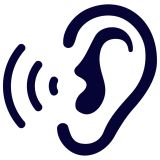In this article:
What is an Audiology Degree?
An audiology degree focuses on the study of hearing and balance disorders. This program prepares students to understand how the auditory system works, the various types of hearing problems, and how to assess and treat these issues. Students learn about anatomy and physiology related to hearing, the technology used in audiology, and the different methods for diagnosing hearing and balance disorders.
In an audiology degree program, students typically take courses in areas such as communication sciences, audiometric testing, and hearing aid technology. They also gain practical experience through supervised clinical training, where they work with patients to conduct hearing evaluations and provide treatment recommendations. This hands-on training is essential for developing the skills needed to help individuals with hearing loss or balance issues.
Program Options
Audiology programs offer various pathways to enter the field, catering to different levels of experience and career goals. Here are some common program options:
- Bachelor’s Degree in Communication Sciences or a Related Field: This undergraduate program provides foundational knowledge in speech, hearing, and language development, preparing students for advanced study in audiology.
- Master’s Degree in Audiology: Traditionally, a master’s degree was an option for audiologists, but it has largely been replaced by the Au.D. as the standard qualification in the field. While a master’s degree may still be offered in some places, it is typically no longer the preferred or required program for those aiming to become licensed audiologists. However, a master’s degree in a related field, such as speech-language pathology or communication sciences, can still provide a foundation for work in fields like speech therapy or communication disorders.
- Doctor of Audiology (Au.D.): The professional doctoral program is designed for those seeking to become audiologists. It includes in-depth coursework on audiologic assessment, rehabilitation, hearing aid technology, and clinical practice.
- Certification and Licensure: After completing academic programs, audiologists must obtain certification and licensure to practice, which typically requires passing exams and fulfilling continuing education requirements. Some audiologists also pursue specialized certifications in areas like pediatric audiology or vestibular rehabilitation.
Skills You’ll Learn
An audiology program equips students with a variety of skills essential for diagnosing and treating hearing and balance disorders. Here are some key skills learned:
- Hearing Assessment: Students learn how to conduct various tests and evaluations to diagnose hearing loss and other auditory conditions, using specialized equipment like audiometers and tympanometers.
- Patient Care and Counseling: Audiologists are trained to provide compassionate care, explaining diagnoses, treatment options, and hearing aids to patients. They also offer counseling to help individuals cope with hearing loss or balance issues.
- Hearing Aid and Assistive Technology: Training includes fitting and maintaining hearing aids, cochlear implants, and other assistive listening devices to improve patients’ hearing abilities.
- Balance and Vestibular Assessment: Students gain skills in diagnosing and treating balance disorders using techniques like videonystagmography (VNG) and rotational testing.
- Rehabilitative Techniques: Audiologists learn to help patients improve their communication skills, whether through hearing aids, speechreading, or auditory training.
- Research and Technology: Students are exposed to the latest advances in audiology, learning how to incorporate new technologies and research findings into their practice.
What Can You Do with an Audiology Degree?
An audiology degree opens up a variety of career opportunities focused on diagnosing, treating, and managing hearing and balance disorders. Here are some potential career options for graduates:
- Audiologist: As a licensed audiologist, you can work with individuals of all ages to assess hearing loss, fit hearing aids, and treat balance issues. Audiologists often work in hospitals, private practices, or rehabilitation centers.
- Speech-Language Pathologist (with additional training): Audiologists can also pursue additional certifications to work as speech-language pathologists, providing therapeutic services to individuals with communication disorders, including those caused by hearing loss.
- Hearing Aid Specialist: A career as a hearing aid specialist involves fitting and maintaining hearing aids and other assistive devices, often working in conjunction with audiologists to provide patient care.
- Pediatric Audiologist: Specializing in diagnosing and treating hearing and balance disorders in children, pediatric audiologists work in schools, hospitals, or private clinics to support early intervention for hearing impairments.
- Geriatric Audiologist: Focusing on the hearing and balance needs of older adults, geriatric audiologists often work in nursing homes, rehabilitation centers, or senior living communities to help improve the quality of life for elderly patients.
- Industrial Audiologist: Working in industrial settings, you can help monitor and prevent noise-induced hearing loss among employees. This role involves assessing workplace noise levels and developing hearing conservation programs.
- Tinnitus Specialist: In this specialized role, you work with patients experiencing tinnitus (ringing in the ears). You help develop management strategies and treatment plans tailored to their specific needs.

